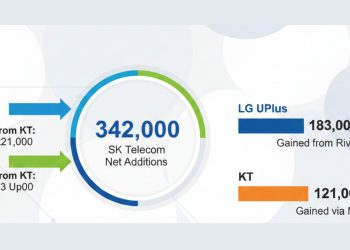South Korea’s President Lee Jae-myung has nominated Bae Kyung-hoon, the head of LG AI Research, as the new Minister of Science and ICT. The appointment, announced on June 24, has shown the administration’s strong push to position the country as a global leader in artificial intelligence.
Bae’s nomination follows a recent wave of tech-sector appointments under President Lee’s leadership. On June 15, Ha Jung-woo, who leads Naver’s AI Innovation Center, was named the first senior secretary for AI and future planning — a newly created role focused on driving national strategies and investment in AI technologies.
The appointments of Bae Kyung-hoon and Ha Jung-woo mark a major shift in South Korea’s approach to AI development, blending public policy with deep industry expertise. Together, they will lead the government’s AI strategy, supported by over 100 trillion won (US$72.29 billion) in combined public and private investment. Their focus includes building local AI models using domestic infrastructure, data, and talent—part of President Lee Jae-myung’s broader goal of making South Korea one of the world’s top three AI powers.
Bae, 49, brings a diverse background in both corporate and policy roles. He has held senior positions at Samsung, SK Telecom, and LG and became the founding president of LG AI Research in 2020. Under his leadership, LG developed the large-scale language model Exaone, which was commercialized in 2023 and released as open source in 2024.
In March, his team introduced Exaone Deep, Korea’s first inference AI model. He has also contributed to national AI governance and privacy initiatives through various advisory roles.
Presidential Chief of Staff Kang Hoon-sik described Bae as an ideal candidate who bridges academia, industry, and policy. Kang highlighted Bae’s receipt of the Silver Tower Order of Industrial Service Merit, awarded for his role in commercializing hyperscale AI, as evidence of his impact in the field.
Experts say the choice to bring in professionals like Bae and Ha is a growing realization that AI advancement requires not just policy leadership but also practical, on-the-ground experience.
Once confirmed by parliament, Bae will lead the Ministry of Science and ICT, overseeing national science policy and digital infrastructure. Working closely with Ha, he will help design and coordinate interagency strategies for AI development. Both advocate for building sovereign AI systems that reduce dependence on foreign platforms and better reflect the Korean language, data, and values.
Industry observers believe this public-private alignment will boost Korea’s AI competitiveness. Professor Choi Byung-ho of Korea University noted that Bae is one of the few in the country capable of managing frontier AI models from concept to deployment. He emphasized the need for speed and precision in national AI planning, saying that only domain experts—not general bureaucrats—can drive meaningful progress in this rapidly evolving field.
Experts widely believe that expanding and upgrading infrastructure is crucial for South Korea to accelerate its AI progress and develop competitive, homegrown models. Crucial elements include reliable energy systems, powerful GPUs, large-scale data centers, advanced software, supercomputing capabilities, and access to quality data.
Professor Choi Byung-ho of Korea University emphasized that Korea currently lacks the scale of infrastructure needed to support globally competitive AI models, noting that AI evolves rapidly and both immediate and long-term planning must progress together.
The government’s move to bring in leaders with hands-on experience from major tech companies has raised expectations for more practical and effective policies. Industry observers believe these appointments could help bridge the gap between policy and real-world implementation, particularly in rapidly evolving fields like AI. With the right infrastructure and leadership in place, many hope South Korea can move beyond just catching up to setting global standards in AI.







